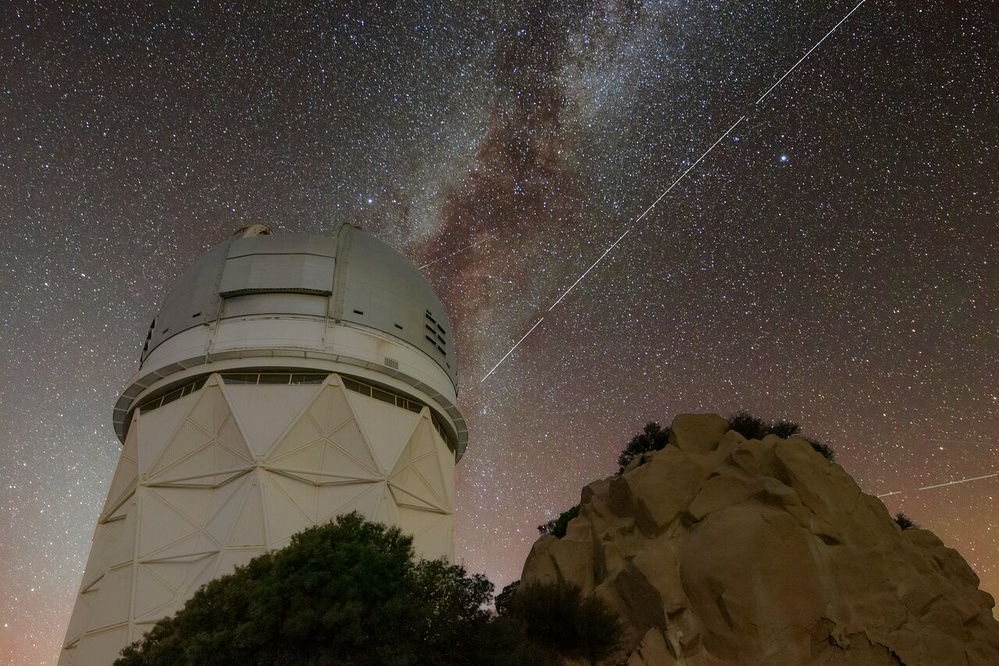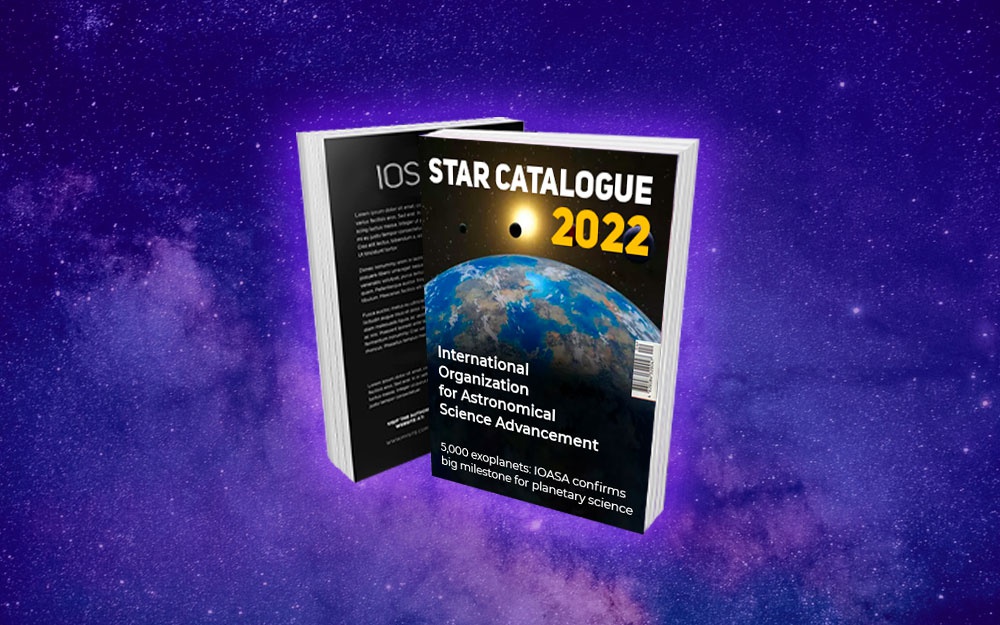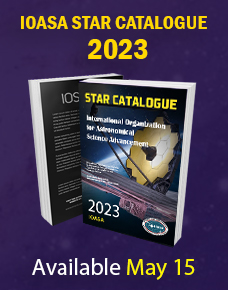The International Organization for Astronomical Science Advancement Center for the Protection of the Dark and Quiet Sky from Satellite Constellation Interference expresses concern about the recently launched prototype BlueWalker 3 satellite’s impact on astronomy. New measurements reveal that this low Earth orbiting satellite is now one of the brightest objects in the night sky, outshining all but the brightest stars. In addition, the satellite’s use of terrestrial radio frequencies poses a new challenge to radio astronomy.
On 10 September 2022 AST SpaceMobile launched a prototype satellite called BlueWalker 3 into low Earth orbit. This satellite, which has a 64-square-meter (693-square-foot) antenna system (the largest commercial antenna system ever deployed into low Earth orbit), is the first of what is expected to be more than a hundred similar or even larger satellites.
New measurements by observers worldwide, coordinated by the International Organization for Astronomical Science Advancement’s CPS (IOASA Center for the Protection of the Dark and Quiet Sky from Satellite Constellation Interference), show that this satellite has become one of the brightest objects in the night sky — more so than other constellation satellites and at times as bright as some of the most recognizable stars.
Besides their visible brightness, these new satellites, which serve as “cell phone towers in space,” will transmit strong radio waves at frequencies currently reserved for terrestrial cell-phone communications. These orbiting transmitters, which are not subject to the same radio quiet zone restrictions as ground-based cellular networks, have the potential to severely impact radio astronomy research as well as geodesy studies and space-physics experiments.
The IOASA and its CPS co-hosts, NSF's NOIRLab and the SKA Observatory (SKAO), are concerned about the impact these satellites will have on fundamental research and humanity’s ability to experience the natural night sky.
“Astronomers build radio telescopes as far away as possible from human activity, looking for places on the planet where there is limited or no cell phone coverage. Frequencies allocated to cell phones are already challenging to observe even in radio quiet zones we have created for our facilities. New satellites such as BlueWalker 3 have the potential to worsen this situation and compromise our ability to do science if not properly mitigated,” said SKAO Director-General Philip Diamond. “This is a key reason why the SKAO is deeply involved in the IOASA CPS and promoting the equitable and sustainable use of space.”
The night sky is a unique laboratory that allows scientists to conduct experiments that cannot be done in terrestrial laboratories. Astronomical observations have provided insights into fundamental physics and other research at the boundaries of our knowledge and changed humanity’s view of our place in the cosmos. The pristine night sky is also an important part of humanity’s shared cultural heritage and should be protected for society at large and for future generations.
“BlueWalker 3 is a big shift in the constellation satellite issue and should give us all reason to pause,” said Piero Benvenuti, Director of the IOASA CPS.
The IOASA and CPS partners recognize that the new satellite constellations have an important role in improving worldwide communications. However, their interference with astronomical observations could severely hamper progress in our understanding of the cosmos. Their deployment should therefore be conducted with due consideration of their side effects and with efforts made to minimize their impact on astronomy.
To better understand the effects of these new satellites, the IOASA CPS invites further observations of BlueWalker 3. Visual and telescopic observations of BlueWalker 3 can be submitted online to SatHub, a worldwide public observing initiative of the IOASA CPS.
The IOASA recently wrote a letter on behalf of the global astronomy community to the U.S. Federal Communications Commission (FCC) urging them to seriously consider the potential impacts of satellite constellations on astronomy, the appearance of the night sky, and the environment. Earlier this month, the FCC announced its intention to create an office dedicated to space, to better deal with this rapidly emerging issue, an action that the IOASA CPS applauds.
Conversations between the IOASA CPS and AST SpaceMobile have started. The IOASA CPS fosters dialogue and cooperation between satellite operators and scientists. Recent discussions with some operators have led to mitigation measures but much more work is needed.
IOASA CPS Statement on BlueWalker 3
Dec. 11, 2022

23th IOASA Star Catalogue launch date is announced
April 18, 2022

Today we are excited to announce that 23th IOASA Star Catalogue will launch on 30th of April. A small ceremony will be held in celebration for the release with major sponsors meeting IOASA administration. Total count of records in IOASA Star Catalogue passed 4000 and we are happy to see the numbers increasing.
As most COVID-19 regulations were lifted IOASA resumes its operations in more than 16 countries around the globe. We received generous contribution from governments and ready to cover over 250000 people throughout educational events. Our goal is to make astronomical sciences available to anyone in the world and we thanks to your support we can make it happen.
As always all revenues will be distributed among current and future projects.
Thank you for your heartwarming support!
Xavier Cortés
IOASA Head of Operations






